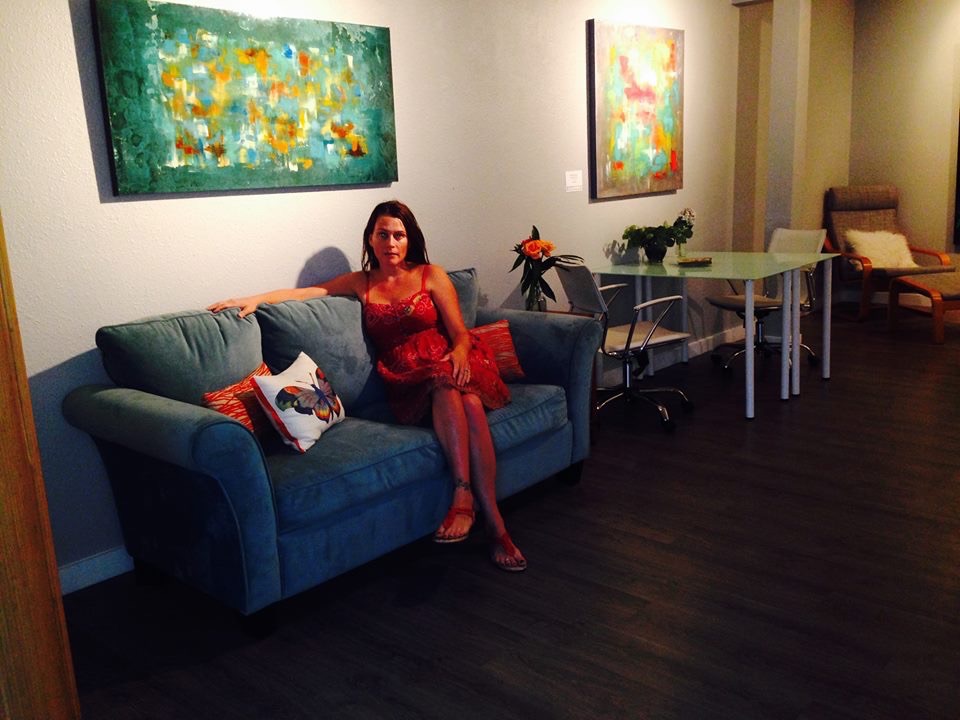Navigating Anxiety in BIPOC Communities: Breaking the Stigma and Seeking Therapy

Anxiety is a common mental health issue that affects millions of people worldwide, but within BIPOC (Black, Indigenous, and People of Color) communities, the experience of anxiety can be compounded by unique cultural, social, and systemic factors. In this blog post, we'll explore the prevalence of anxiety among BIPOC individuals, examine some of the contributing factors, and provide tips for seeking help through therapy. Understanding Anxiety in BIPOC Communities:
Research has shown that BIPOC individuals often face higher levels of stress due to experiences of discrimination, racism, intergenerational trauma, and socioeconomic disparities. These factors can contribute to the development and exacerbation of anxiety disorders. Additionally, cultural stigma surrounding mental health issues may prevent individuals from seeking help or accessing appropriate treatment.
Tips for Seeking Help Through Therapy:
- Normalize Therapy: Encourage open conversations about mental health within your community to reduce stigma and increase awareness about the benefits of therapy.
- Find Culturally Competent Therapists: Look for therapists who have experience working with BIPOC individuals and understand the unique cultural and societal factors that may impact mental health.
- Utilize Community Resources: Many organizations offer low-cost or sliding-scale therapy options for BIPOC individuals. Research local community centers, non-profits, or online platforms that prioritize diversity and inclusivity in mental health care.
- Practice Self-Care: Incorporate self-care activities into your daily routine to manage stress and anxiety. This could include mindfulness exercises, physical activity, creative outlets, or spending time with loved ones.
- Prioritize Your Mental Health: Remember that seeking help is a sign of strength, not weakness. Your mental health is important, and you deserve to prioritize your well-being.
Anxiety is a significant concern within BIPOC communities, but with increased awareness, support, and access to culturally competent therapy, individuals can find effective ways to manage their symptoms and improve their overall well-being. By breaking the stigma surrounding mental health and seeking help when needed, BIPOC individuals can take important steps towards healing and resilience.
References:
- Williams, M. T., Metzger, I. W., Leins, C., & DeLapp, C. (2018). Assessing racial trauma within a DSM-5 framework: The UConn Racial/Ethnic Stress & Trauma Survey. Practice Innovations, 3(4), 242–260.
- Alegría, M., et al. (2016). Disparities in mental health service use in racial/ethnic minorities: A review. Psychological Bulletin, 133(1), 412–443.
- Photo: https://adaa.org/find-help/by-demographics/bipoc-resources
By: Jasmine Davis
Storytelling that connects, heals, and inspires our community.
Explore our library of dynamic content.

Healing from Within: How Self-Compassion Leads to Lasting Growth

Spring Reset: You’re Not Behind, You’re Right on Time
.png)
Promoting Belonging For All

How Shifting Seasons Affect Our Mood: Embracing the Changing Weather

The Neurobiology of Trauma

Setting Boundaries Without the Guilt

Faith-Based Affirmations for Confidence & Self-Love

Emotional Resilience: Building Strength in the Face of Life’s Challenges

No Vacancy: Reclaim Your Mind and Guard Your Peace

From Betrayal to Acceptance: Navigating the Complex Emotions of Friendship Breakups

The Importance of Meaningful Connections Beyond Romance

Faith and Fertility: Navigating the Journey of Infertility with Hope
.png)
The Lasting Impact of Childhood Trauma on Adult Relationships

The Impact of Television on Mental Health: A Double-Edged Sword

Ambiguous Loss: What It Is, and The Path Towards Healing
.jpg)
Breaking The Cycle Radio featuring Inspired Practice clinician Dr. Alicia Hawley-Bernandez!

The Hidden Battle; Navigating Mental Health with Chronic Illness

Supporting the Mental Health for Underrepresented Populations

Trauma and the Body: Healing Holistically

The Beauty of Feeling: Why Being Sad is Part of the Journey

How Being in Nature Can Improve Your Mental Health and Well-Being

Navigating Wellness with Dr. Jennifer Vasquez

Travel Anxiety

March is self-harm awareness month

Inspired Practice Therapist Chantal Pierre featured in Voyage San Antonio magazine
-42.jpeg)
Inspired Voices Podcast #1

Clinical Director Transforming Trauma Podcast interview

Clinical Director Go Solo interview
.jpg)
Spirituality and Mental Health

Mental Health and Addiction

How to move forward and heal from traumatic events

Burnout and the workplace




